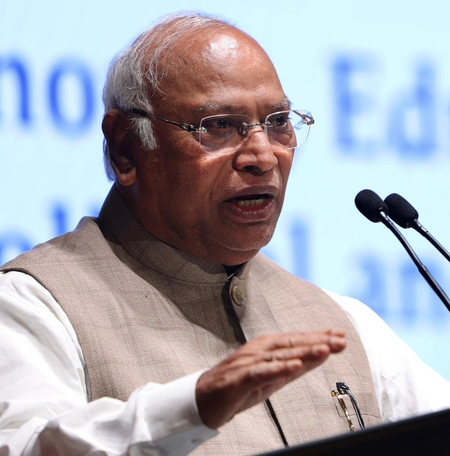
New Delhi, July 24 (IANS) Congress president Mallikarjun Kharge on Thursday reaffirmed the Congress party’s commitment to caste-based data collection, lauding the Telangana caste census as a “great achievement” and urging other states to adopt similar models.
In a detailed post on social media platform X, Kharge framed the initiative as central to ensuring representation and equity for Scheduled Castes (SC), Scheduled Tribes (ST), Other Backward Classes (OBC), and minorities. Kharge claimed that if socially and politically marginalised communities align with Congress, the party could surpass the 50 per cent vote threshold.
He credited the Leader of the Opposition (LoP) in Lok Sabha, Rahul Gandhi’s Bharat Jodo Yatra — a 3,500-km journey from Kanyakumari to Kashmir — as a catalyst for increased discourse around backward class participation.
“No other leader can do that work,” Kharge wrote, highlighting LoP Rahul Gandhi’s sustained advocacy for the rights of SCs, STs, and OBCs.
The Congress chief argued that the caste census does not disadvantage any group, noting that India’s existing 50 per cent reservation cap had already been breached with the addition of 10 per cent reservation for Economically Weaker Sections (EWS).
“This means there is no injustice to anyone,” he said, positioning caste enumeration as a tool for ensuring rightful access and inclusion.
Underscoring the link between development and social empowerment, Kharge emphasised the need for “economic strength, human strength, and mental strength” within communities.
He also advocated for equitable English education, criticising what he called the selective privilege of RSS-BJP leaders, who “pay lakhs of rupees” for their children’s schooling while denying access to the poor.
“If the government educates the children of the poor with government money, then what is the harm?” he questioned.
Kharge’s comments come amid renewed calls for a nationwide caste census, a politically sensitive issue likely to shape electoral narratives in the run-up to the next Lok Sabha polls.
While regional experiments like Telangana’s have attracted praise from sections of civil society, critics argue that the methodology, legality, and potential impact on reservation policy merit deeper scrutiny.
–IANS
sktr/dan



